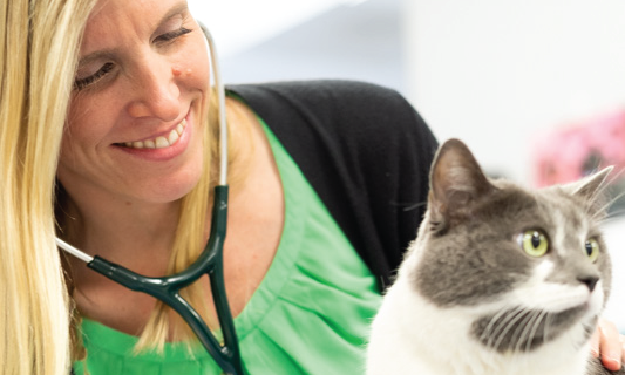Metronomic Chemotherapy

What is Metronomic Chemotherapy?
Metronomic chemotherapy (low dose chemotherapy) is a treatment option for dogs and cats with a variety of cancers. It may be used instead of, or in addition to, conventional chemotherapy. Metronomic chemotherapy involves the use of low dose daily chemotherapy including the drugs cyclophosphamide (Cytoxan) and a non-steroidal anti-inflammatory medication (ie Piroxicam, Previcox, Deramaxx, Metacam). This form of therapy is relatively new and is focused on disrupting the vascular environment so tumor cells do not gain the blood supply needed to grow. Initial studies investigating this option with debulked hemangiosarcoma and soft tissue sarcomas have shown a notable increase in the disease-free interval (time from diagnosis until disease recurrence/metastasis) as compared to patients who did not receive this therapy. While the efficacy of metronomic chemotherapy has not been evaluated with other tumor types, its mechanism of action provides the rationale to consider this therapy. Although this therapy is preferred in the setting of microscopic disease, this option can be used to reduce the risk of local, regional, or distant disease progression.
Other variations of metronomic chemotherapy have also been explored either empirically or with limited small clinical studies and depending on your pet’s tumor type or their concurrent illnesses, may also be recommended to you. Options may include the following protocols:
- Single agent low-dose Cyclophosphamide
- Metronomic Chlorambucil (Leukeran)
- Cyclophosphamide in combination with the oral small molecule inhibitor Palladia
What are the Side Effects?
Side effects associated with this protocol are minimal and typically reversible once the medication is stopped. Gastrointestinal irritation (vomiting, diarrhea) and kidney toxicity are uncommon side effects but typically secondary to administration of the non-steroidal anti-inflammatory medication. Bloodwork including kidney values will be monitored on a routine basis. A rare but significant side effect called sterile hemorrhagic cystitis (when blood is passed in the urine in the absence of an infection) can be seen with cyclophosphamide use. A urinalysis to monitor for this side effect is required monthly.
How Will My Pet be Monitored?
Initially, your pet will have monthly recheck exams which will include bloodwork and a urinalysis. Once we are comfortable that your pet is tolerating this protocol well, bloodwork and exams will be performed every 2 to 3 months depending upon your pet’s disease process. A urinalysis (submitted to a laboratory through either TOS or your regular veterinarian) is required monthly in order to refill your medications. A recheck with TOS is required at minimum every three months while on this protocol to monitor the status of your pet’s disease.